Hosted by Claire Musters
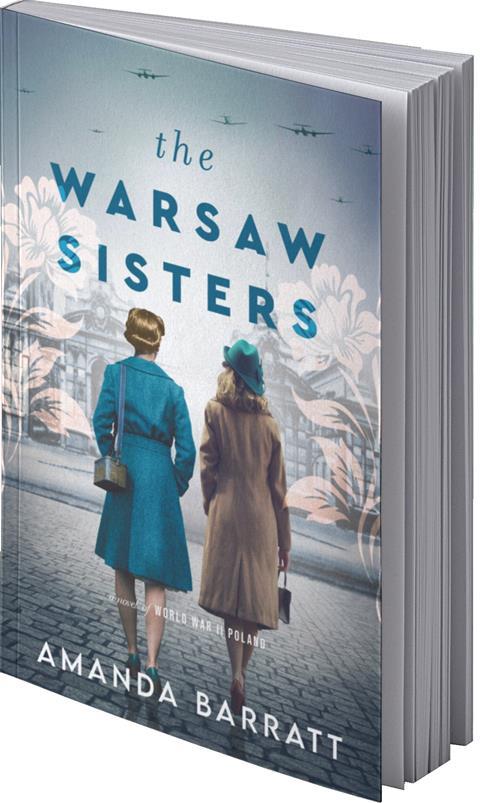
This month I’m reading…
The Warsaw Sisters
By Amanda Barratt (Revell, 978-0800741716)
Set in Warsaw in 1939, and spanning the whole of the Second World War, this novel by Amanda Barratt introduces two sisters, Antonina and Helena Dabrowska (Tosia and Hela) and the impact the war had on them. The story starts with them saying goodbye to their father as he goes to fight…and then the bombs begin to fall on the city.
Tosia’s closest friend, Marek, is Jewish, and she watches in horror as his family is rounded up. Eventually she decides to take action, not only reaching out to his family (putting herself in danger as she does) but getting involved with an underground initiative. As it has to remain a secret, even from her beloved sister, their relationship is affected deeply.
While fictional, Amanda drew on real-life events and people. The horrors of the war, and particularly what happened in Warsaw, are revealed in great detail, making the book a hard read at times, and yet it causes readers to be emotionally involved and impacted, which is hugely powerful. I never knew all the details of how Warsaw was affected; the author was at great pains to describe how the city was trapped, overtaken, crushed and forgotten in equal measure.
There isn’t much overtly Christian content in the book, but both sisters wrestle with their faith – or what is left of it – at times in a very believable way.
How did you decide which part of history to focus on for this book?
Though I’ve written novels and novellas set in a variety of eras, I’m ceaselessly intrigued by the Second World War. In times of some of the greatest evil and inhumanity our world has ever known, there emerged glimmers of courage, resilience and hope. This juxtaposition is extraordinarily powerful and inspires me as I write. I also believe it has never been more imperative to keep this period of history from fading from memory. Though novels such as The Warsaw Sisters are historical fiction, they can be a starting point of discovery.
What was it about Warsaw in particular that drew you to set the novel there?
The story of Warsaw during the Second World War is tumultuous and tragic, yet much of its history remains little-known outside of Poland. Warsaw is a city of two uprisings. The first was the ghetto uprising of 1943. Following the mass deportations to the Treblinka extermination camp, less than 1,000 Jewish men and women, the majority in their teens and early 20s, battled German forces in a revolt lasting nearly a month. The second pivotal event was the citywide uprising by the Home Army, one of the largest resistance organisations in occupied Europe. In the summer of 1944, soldiers of the Home Army rose up in an attempt to liberate Warsaw from German occupation. This heroic and tragic 63-day battle ended in the Home Army’s defeat, but their extraordinary valour stands as a testament to the power of resistance. Both uprisings left an enduring imprint on Warsaw and Poland as a whole. Throughout my research, I discovered numerous accounts of courage birthed by adversity that begged to be explored through a narrative format.
There are details in the story that, while fictional, draw on real-life people and events. Could you explain who the two sisters were inspired by?
Antonina is inspired by the women who rescued Jewish children from the Warsaw ghetto. The most famous of these women is Irena Sendler, a social worker who became a leader in the underground organisation Żegota. Though Irena Sendler has become famous – and deservedly so – myriad unsung heroines laboured alongside her. Through Antonina’s character, I wanted to remember the others who risked their lives to protect the most vulnerable. Helena is inspired by the women who joined the Home Army. When the Warsaw Uprising broke out, nearly 12,000 women served in various roles, including couriers, nurses and combatants. It is an honour to pay tribute to these remarkable women and bring their stories out of the shadows.
What was the writing process like – there are so many harrowing scenes that it must have been difficult at times?
Every story I write is a journey alongside my characters. As the characters in The Warsaw Sisters experienced the horror and tragedy of war, my heart broke for them and with them. Though I carefully chose what to ‘show’ on the page, it was deeply important to me to portray the realities of life in occupied Poland with authenticity, as doing otherwise would, I believe, be a grave disservice to the ones who lived those experiences. Telling the story through the eyes of the characters necessitated depicting what they endured and witnessed. Though the two protagonists are fictional, all of the most harrowing scenes in the novel are drawn from first-hand accounts.
How does your faith impact your writing?
All of my books have elements of faith woven throughout. I strive to portray the faith journeys of my characters in a way that flows authentically, rather than attempting to pigeonhole sermons or themes into the story in order to check a particular box. My characters are flawed and often broken, grappling with their faith in the midst of suffering and evil. Often the questions they ask are ones I’ve walked through in my own relationship with God. Personally, I would find it difficult to write a novel that didn’t include themes of faith because I truly believe that without God, life is empty. In a dark world, he is light and our truest hope is found in him.
Amanda Barratt on:
The books that have changed my life
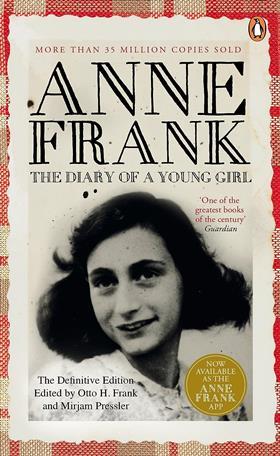
The Diary of a Young Girl
by Anne Frank
I first read Anne Frank’s diary at around the age of eight. The legacy of this remarkable young woman touched and inspired me, sparking a lifelong passion for the human stories of the Second World War.
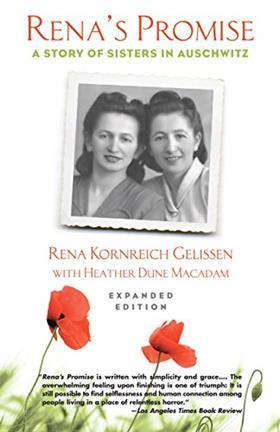
Rena’s Promise: A story of sisters in Auschwitz
by Heather Dune Macadam
This is a powerful account of the holocaust and one I highly recommend. The way the bond of sisterhood brought courage and hope in the face of unfathomable cruelty is profoundly moving.
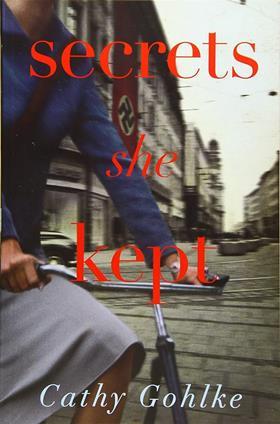
Secrets She Kept
by Cathy Gohlke
This novel blends the story of a young woman in Germany during the Second World War with that of her daughter returning to the country of her mother’s birth to discover the truth about her mother’s past. It’s a story both heartbreaking and inspiring, with themes of faith and forgiveness. One of my favourites!














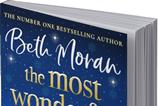


















No comments yet